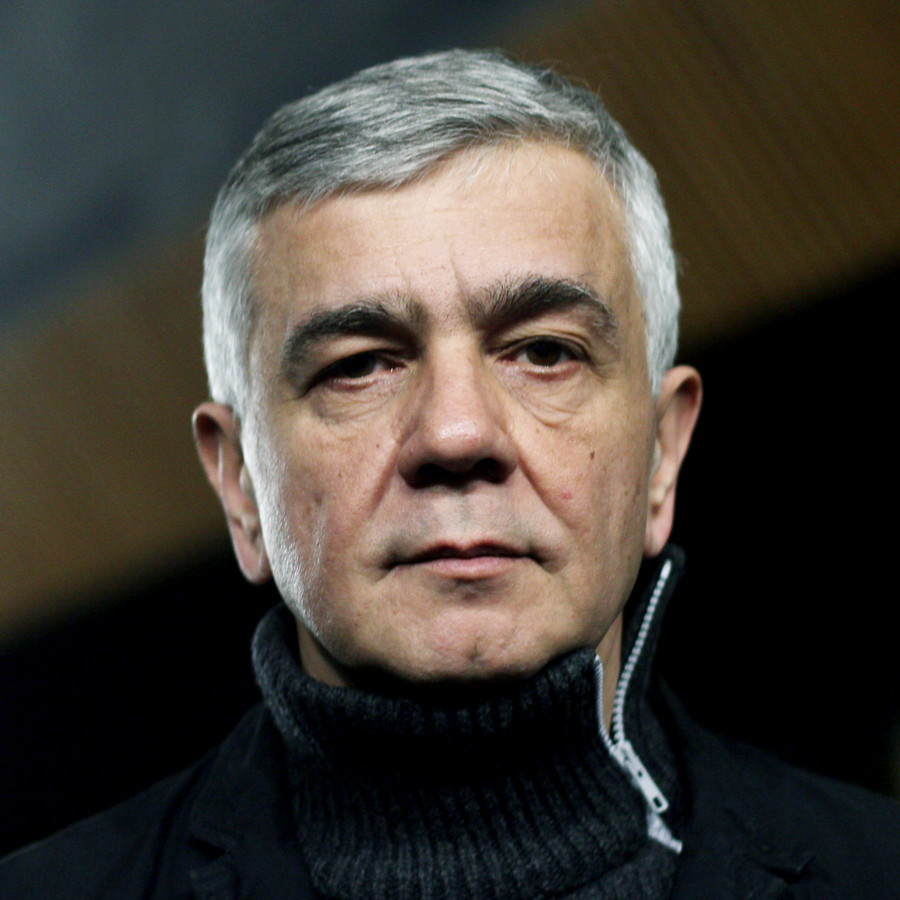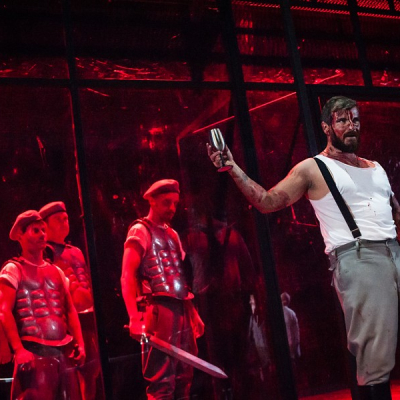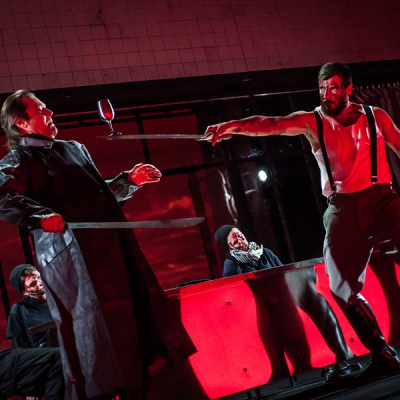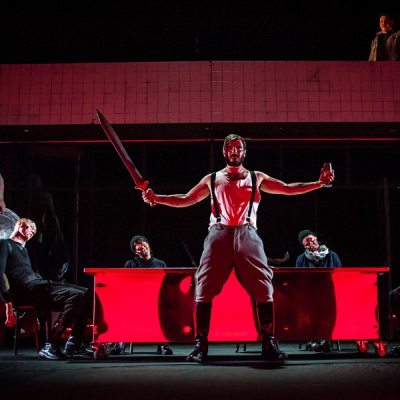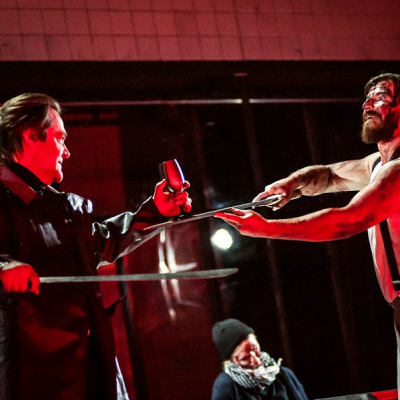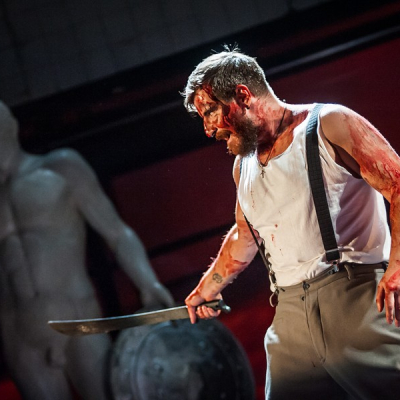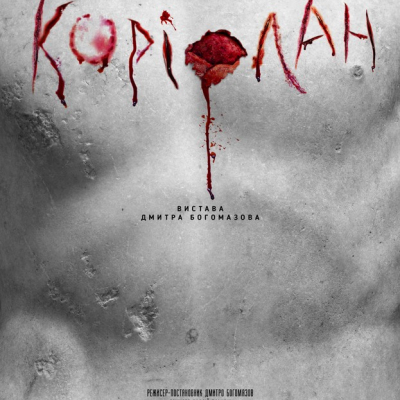Archives 2019
CORIOLANUS 14
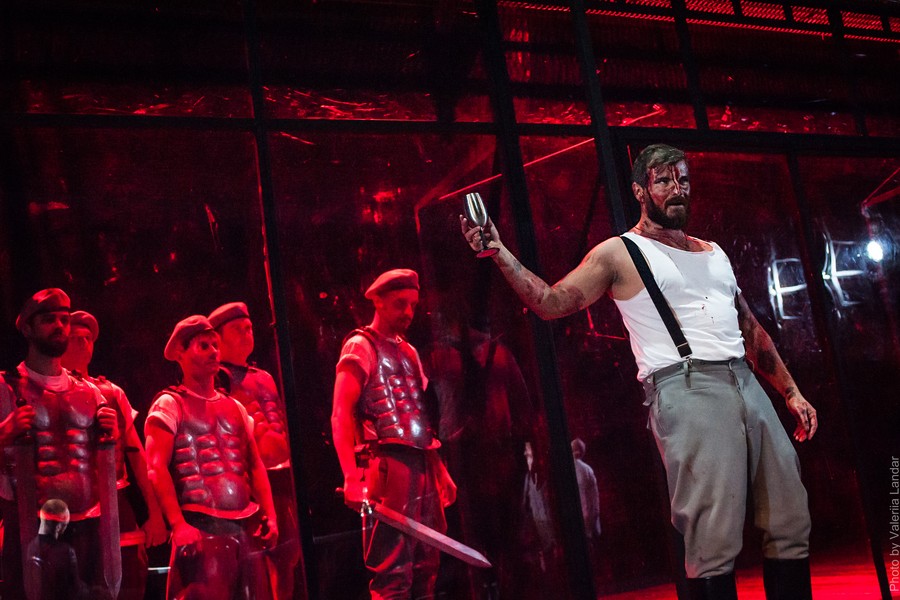
Ivan Franko National Academic Drama Theatre, Kyiv, Ukraine
Director: Dmytro Bogomazov
In Ukrainian with English and Hungarian subtitles
3 hours with 1 breaks.
The tragedy "Coriolanus" is a story of the rise and fall of the legendary Roman warlord. W. Shakespeare took the plot basis for his play from the story of the Greek writer Plutarch. There is also an acute political drama in this play, a drama of family relations, and an internal tragedy of one person.
Its hero Caius Marcius, who became famous because of his exploits in the war with the enemies of the Romans - Volsces. After conquering the Volscian city of Corioli he received the byname Coriolanus for military victories.
After returning home with victory, the valiant warrior goes to "big" policy – to the consuls of the Roman Republic. But in political battles, the invincible and enduring hero, accustomed to winning the enemies in an open battle, became vulnerable in his strength: the straightforward, frank and uncompromising Coriolanus is not capable of deception and tricks. Due to political manipulations, instead of honor and recognition, a brave warrior is proclaimed an enemy of the people and receives a verdict from the Romans - life-long exile.
An angry Coriolanus leaves the city. In the desire to take revenge, he is united with his former enemies – Volsces and leads their army to Rome. But on the eve of a decisive assault, Coriolanus, moved by the supplications of the mother, refuses to permanently destroy Rome and pays for this choice of his own life. "... The mother plays a big role in the tragedy, “this is the most beautiful and most accomplished figure of the mother, which Shakespeare ever created”. Shakespeare used the figure of his own mother for this figure. This figure could fully recover in his memory just when his mother died, and this happened on September 9, 1608. Shakespeare, without a doubt, was at her funeral and then still had a couple of Sundays in Stratford. From this we deduce that at the same time, under the impression of mother`s death, "Coriolanus" was written ... " (Ivan Franko, “W. Shakespeare. Coriolanus, translation by P. Kulish, Lviv, 1990”).
Director – Dmytro Bogomazov
Assistant director – Andrii Saminin
Set & costume designer – Petro Bogomazov
Choreographer – Oleksii Busko
Composer – Oleksandr Kokhanovskyi
Sound operators – Oleksandr Kryshtal, Pavlo Natalushko
VJ – Oleksandr Rozhkov
Theatrical lighting – Hanna Vakhovska
Deputy stage manager – Mariia Savka
Cast:
Caius Martius, later Coriolanus – Dmytro Rybalevskyi
Menenius Agrippa, patrician – Bogdan Beniuk
Sicinius Velutus, tribune – Ostap Stupka
Junius Brutus, tribune – Ivan Sharan
Cominius, patrician and general – Oleg Stalchuk
Volumnia, Coriolanus mother – Nataliia Sumska
Virgilia, Coriolanus wife – Anastasia Rula
Roman senator – Vasyl Mazur
Servant – Oleksandr Begma
First citizen – Oleksandr Petcherytsia
Second citizen, First aedile, Messenger – Vitalii Azhnov
Third citizen, Second aedile – Pavlo Shpegun
Fourth citizen – Ksenia Basha-Dovzhenko
Tullus Aufidius, general of the Volscians – Oleksii Bogdanovych
Volscian lieutenant – Volodymyr Abazopulo
Volscian senator – Arseniy Tymoshenko
Cotus – Dmytro Chernov
First watch – Oleksandr Rudynskyi
Second watch – Kseniia Vertynska
Roman citizens, Roman soldiers – Svitlana Kosolapova, Roman Shepel, Dmytro Lukianenko, Khrystyna Fedorak, Yaroslav Bondarenko, Ivan Zaluskii
Volscian soldiers – Natalia Neshva, Anna Markovych, Volodymyr Zbarazskyi
Dmytro Bogomazov


